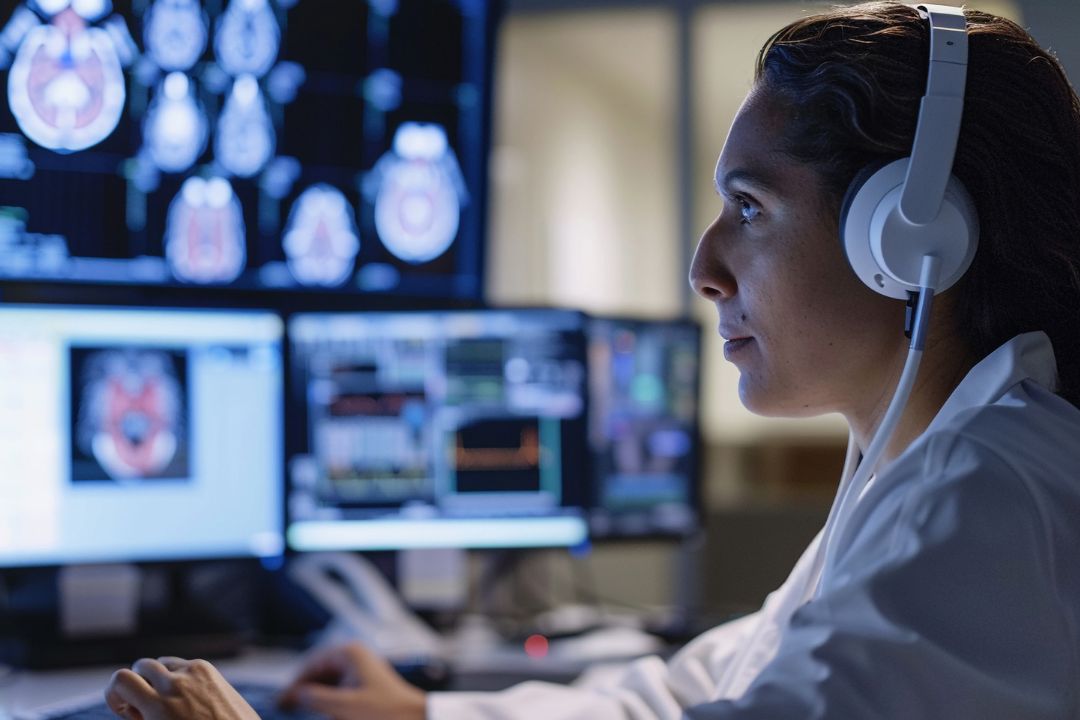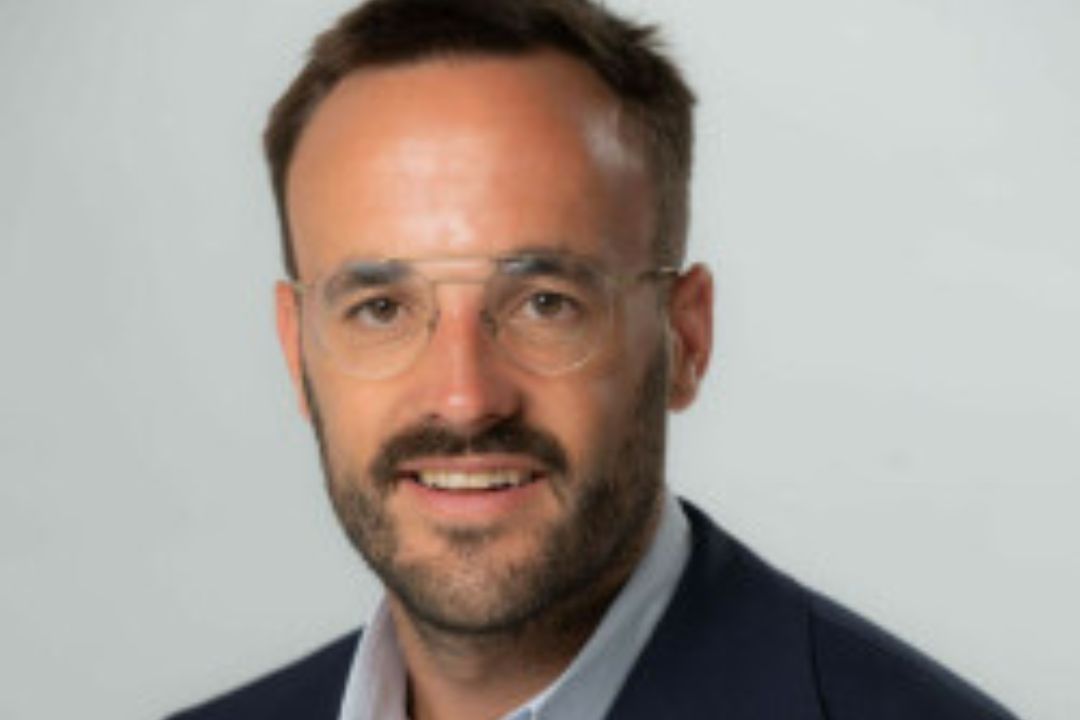28th October 2022
Ten promising early-stage start-ups from Central, Eastern and Southern Europe have been selected to take part in the Grand Final of the InnoStars Awards, one of the accelerator programmes of EIT Health. The winning teams work on innovative solutions such as a digital iron deficiency screener, an advanced antibacterial wound dressing and an ultra-personalised nutritional advice platform.
InnoStars Awards aim at early-stage start-ups with a prototype or Minimum Viable Product. In 2022, the programme was organised for the sixth time, and over 100 projects have applied for participation this year.
Among the top ten teams, Italy is represented by four, Greece by two, while one comes from Estonia, Hungary, Romania and Czechia. Their solutions represent a variety of fields in biotechnology, medical technology and life sciences, ranging from a real-time monitoring device ensuring the traceability of transfusion blood bags to a digital platform for dermoscopy examination.
The finalists will participate in the Grand Final pitching competition on November 24, where the top three teams will receive prizes worth €25,000, €15,000 and €10,000, respectively. On top of the prize money, EIT Health will also provide networking opportunities with InnoStars Partners, healthcare providers and investors.
Previous competitors in the InnoStars Awards have achieved great success since their participation in the programme. “Almost 70% of accelerated solutions in the programme have already been launched on the market”, said Tamas Bekasi, RIS Business Creation Manager at EIT Health InnoStars.
He added, “year after year, we see innovative teams with excellent business models and promising solutions having a tangible impact on the healthcare system and patients’ well-being across Europe. The experts of EIT Health support teams to fine-tune their development, financial and funding plans, marketing strategy and sales concept to improve their investment potential and make them more appealing to international investors.”
List of InnoStars Awards finalists 2022:
Quick and Easy AMR detection (QE-AMR) (Italy)
Bioridis Srl
BIORIDIS is a biotech start-up which develops a revolutionary assay for Nucleic Acids (NA) analysis: LIVELMIA method. Their method guarantees unique high performances: direct analysis on the sample, time reduction, high specificity and sensibility.
WHO has designated AMR as one of the highest-priority health and social challenges. A global AMR response will require affordable and accessible diagnostics that can rapidly determine antimicrobial susceptibility. Based on LIVELMIA the team aims to make identifying antibiotic-resistant bacteria quick, reliable and easy to use with the QE-AMR project. The start-up has already developed a test for S.Aureus MRSA, and they are working on other pathogens AMR.
Ferella (Italy)
Fidelio Medical srl
FIDELIO will launch the first digital diagnostic solution enabling easier screening, monitoring and mentorship for women affected by iron deficiency. 1 out of 3 women suffers iron deficiency over a lifetime. If un- or lately treated, iron deficiency may degenerate into chronic mental and physical fatigue, a major cause of disability. In worse scenarios, iron deficiency can lead to severe heart and kidney failures. Difficulty in diagnosing iron deficiency and anaemia often leads to long delays in taking first blood tests and treatments, resulting in additional health risks. While detecting iron efficiency in the early stage will allow preemptive and targeted treatments, monitoring and mentorship will educate and prevent frequent disease relapses.
Medicud (Italy)
Medicud
One in twenty patients undergoing surgery will suffer from Surgical Site Infection (SSI). Negative Pressure Wound Therapy (NPWT) has proven prophylactic efficacy. But use is limited due to unsuitable, expensive and unhandy current devices. Medicud aims to make NPWT the gold standard remedy for closed surgical incisions, such as caesarean sections, with its innovative, unmatchable and ultraportable device. The team has a working prototype and has filed four patents.
BOSET- Blood transfusion monitoring device (Italy)
Idea Società Cooperativa
BOSET is a reusable real-time monitoring device ensuring the traceability of transfusion blood bags and adequate cold chain conditions during transport and when used in hospitals, where units are stored in refrigerated blood banks before transfusion. It accurately records temperature, humidity, delivery and storage time, light exposure, expiry date and donor information; it communicates through Near-Field Communication and Bluetooth Low Energy technologies with a cloud platform connected to the Integrated Transfusion Medicine Network. A prototype ready for large-scale manufacturing is being developed through enhanced electronics layout, compactness, reduced consumption, more appealing aesthetics and improved bag closure of the device.
Advanced antibacterial wound dressing (Estonia)
Nanordica Medical
Nanordica Medical is solving the problem of wound infection, focusing mainly on diabetics with chronic wounds. Wound infections are the major cause of limb amputations among people with diabetes. Their competitive edge is their unique nanotechnology, a mixture of antibacterial nanoparticles developed as a result of over ten years of research. Their first product based on this technology is antibacterial wound dressing (AWD). Their AWD removes bacterial infection eight times better than the current best commercial silver-based wound dressings. With their innovation, the team aims to reduce the infection-related amputation rates among people with diabetes by 20%.
Sprin (Hungary)
DP Innovations
Inhaled drug delivery is impressive. The large surface area of the human lung, combined with its abundant blood supply, makes it one of the BEST routes for treating an array of disorders. The problem is that current inhaled delivery devices waste 50% of medication and, according to several studies, deliver less than a quarter of the active ingredient. Because of this, current devices cannot be used to deliver expensive or high-precision agents like insulin, antibiotics, gene therapy or replace injectables. The start-up team’s solution is a pocket-sized smart nebuliser that helps to deliver precision medication in a safer, more effective, and pain-free way.
NutriCare.Life (Romania)
Smart EpiGenetX
The digital health platform NutriCare.Life leverages human individuality to drive nutrition strategies that prevent diseases, optimise health and encourage a sustainable diet.
The team provides ultra-personalised recommendations on food and supplements that best suit nutritional needs and planet sustainability.
On top of this, to increase the targeted nutrition accuracy, the team uses results of genetic, blood and urine at-home medical testing.
Solid lipid encapsulation for poorly water-soluble active ingredients (Czechia)
Marblemat s.r.o.
MarbleMat is a university spin-off company using their patented device Spheromat for microencapsulation of poorly water-soluble compounds (drugs, nutraceuticals or veterinary medicine). The products of their single-step technology (“oil marbles”) can be filled into standard gelatine capsules and have proven to increase the bioavailability of the encapsulated compounds, reduce potential adverse effects and improve handling properties while allowing flexibility of dosage or multi-compound combinations. The team’s initial focus was on pharma; currently, they are working on food supplements due to more accessible market entrance and the flexibility of their method. They will also offer contract research to customers to establish and optimise the technology.
Ballon Anchoring for Stenosis (Greece)
Shuttle Catheters
Peripheral Artery Disease (PAD) is a major chronic disease affecting millions worldwide and growing due to an ageing population. The team’s technology addresses an unmet need for minimally invasive PAD procedures in roughly 30% of all chronic, severe arterial stenosis cases. They do this at a marginally higher cost than a conventional balloon catheter. This could mean 7.5bn euros in savings for the European healthcare system and reduced morbidity rates thanks to averted open bypass surgeries for roughly 300,000 patients.
Althexis Skin (Greece)
Althexis redefines how the digital dermoscopy examination is undertaken by proposing an innovative new platform technology. They offer an affordable SaaS platform solution by integrating advanced AI technology and Multispectral imaging with Cloud support and Telemedicine features. As non-experts can also operate the system, it enables first-time diagnostic services for health and beauty in areas or populations where too few expert clinicians are available. At the same time, it can serve as a general-purpose skin analyser with various beauty-related applications for Pharmacists and Aestheticians.
New data shows AI innovation needs skills beyond coding

The largest live dataset of AI start-up talent analysed.
Europe's top health start-ups take centre stage: EIT Health Catapult winners are revealed at HLTH Europe

2025 Catapult programme winners announced.
Finding Europe’s next healthtech leaders: Insights from Antoine D’Hollander

Insights from Antoine D’Hollander, Capricorn Partners.